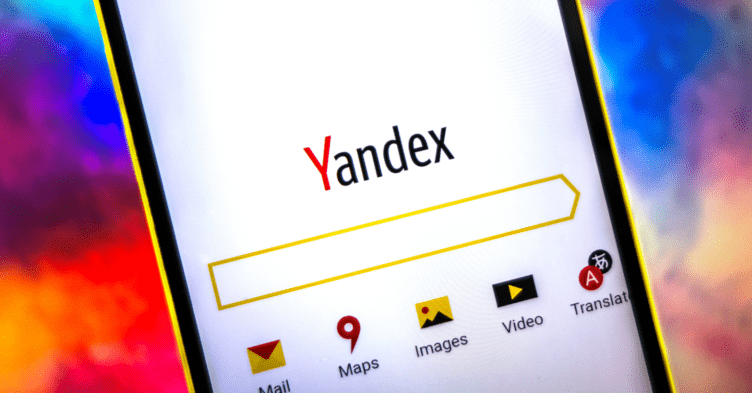When you think of searching the internet, you probably think of one company. It’s like how we say “Google it” for… well, everything. But imagine if, in a huge part of the world, that phrase was “Yandex it.” For over 60 million people daily, that’s exactly the case.
If you’re picturing a simple copycat, a bland imitation of the search engine you know, you’re in for a surprise. Yandex is something far more interesting. It’s a brilliant example of what happens when a tech giant is built not for the whole world, but for a specific home—understanding its language, its culture, and its daily struggles on a level a foreign company simply can’t match.
Think of it this way: Google is a fantastic, all-purpose global GPS. Yandex, however, is the local guide who knows every back alley, which bakery has the freshest bread at 4 PM, and how to navigate the city during a massive snowstorm. It’s built for the realities of its users.
So, let’s pull back the curtain on Yandex Search Engine. You might just discover a new perspective on what a search engine can be.
Cracking the Code: Why Yandex Understands Russian Like a Poet
The secret to Yandex’s success starts with one thing: the Russian language. And Russian isn’t just a different language; it’s a linguistic puzzle. It’s a highly inflected language, meaning words change their endings (their morphology) based on grammar, gender, and context. The sentence “I see the beautiful cat” can be arranged in almost any order, and each arrangement subtly changes the emphasis.
A simple, word-matching search engine would get hopelessly lost. But Yandex’s core technology, its algorithm, was built from the ground up to handle this complexity. It doesn’t just look for keywords; it understands semantics—the actual meaning and relationship between words.
This isn’t just a technical boast; it’s the bedrock of its market dominance. While Google is a global giant, Yandex is the local champion. As of mid-2024, Yandex holds a steady 61% share of the search market in Russia, according to StatCounter GlobalStats. Why? Because when your language is that complex, you trust the tool that was born understanding it.
Beyond the Search Bar: Your Daily Digital Companion
Calling Yandex Search Engine is like calling the latest smartphone a “telephone.” It’s technically true but misses the entire point. Yandex is an ecosystem, a suite of apps designed to solve the practical problems of daily life in its region.
Here’s how it works together in real life:
- Yandex.Maps: While other map apps show you streets, Yandex.Maps shows you reality. It includes incredibly detailed information about building entrances, public transport with real-time arrival data (I’m talking down-to-the-minute accuracy), and even the depth of potholes. There’s a famous anecdote among expats in Moscow: Google Maps might get you to the general area of a hidden bar, but Yandex Maps will guide you to the unmarked, black door you need to push open.
- Yandex.Taxi: Deeply integrated with Maps, this is more than a ride-hailing service. It’s a logistics marvel. During the harsh Russian winter, its algorithms factor in weather and road conditions in a way that feels almost psychic. You can search for a restaurant and hail a taxi to it without ever leaving the Yandex app.
- Yandex.Market: This is the ultimate trust tool for Russian consumers. It aggregates prices and reviews from thousands of online stores. A 2023 study found that over 70% of Russian online shoppers use Yandex.Market to compare prices and check seller reputations before buying anything. It’s their first line of defense against overpaying or scams.
This interconnectedness is Yandex’s superpower. Every taxi hailed, every map searched, and every product compared feeds data back into the core search engine, making it smarter and more context-aware. It’s a virtuous cycle that creates an incredibly sticky user experience.
A New Chapter: Navigating a Changed World
It’s impossible to talk about Yandex today without acknowledging the significant changes it has undergone. In 2023, the company’s Dutch-based parent company sold its core Russian assets—the search engine, Maps, Taxi, and more—to a Russian consortium. This was a historic restructuring, effectively creating a new, fully Russian-owned Yandex.
What does this mean?
For the average user inside Russia, the services continue uninterrupted. The apps still work just as they did before. However, the company’s international ambitions have been scaled back, refocusing its world-class innovation squarely on the domestic market. This is a pivotal moment in the company’s history, a reminder that even technology giants must adapt to the landscape they operate in.
This isn’t using a search engine; it’s living inside a seamlessly integrated digital assistant built for the rhythm of Russian life.
click here:https://www.searchengineinsight.com/yandex-search-engine-review/
The Big Picture: What Yandex Teaches Us
Yandex’s story is a powerful lesson for anyone in business or tech. Its success isn’t about having a better algorithm in a vacuum; it’s about having a more relevant one.
- Hyper-Localization Wins: You can’t just translate an interface and expect to win hearts and minds. You have to understand the cultural and linguistic nuances that define a user’s experience.
- Ecosystems Create Loyalty: By solving multiple daily problems within one connected environment, Yandex made itself indispensable. Leaving its ecosystem means losing convenience at every turn.
- Adaptability is Survival: The company’s recent restructuring shows that even the most established tech players must be nimble enough to navigate profound change.
The Final Word
Yandex is far more than “the Russian Google.” It is a technological powerhouse that mastered its home turf by speaking its language, both literally and figuratively. It’s a reminder that in a globalized world, local understanding remains a profound competitive advantage.
So, the next time you effortlessly “Google” something, remember that in the vastness of the internet, there are other guides, equally sophisticated, lighting the way for their own communities. Yandex is the master key to the Russian-speaking internet—a key shaped by and for the lock it was designed to open.



